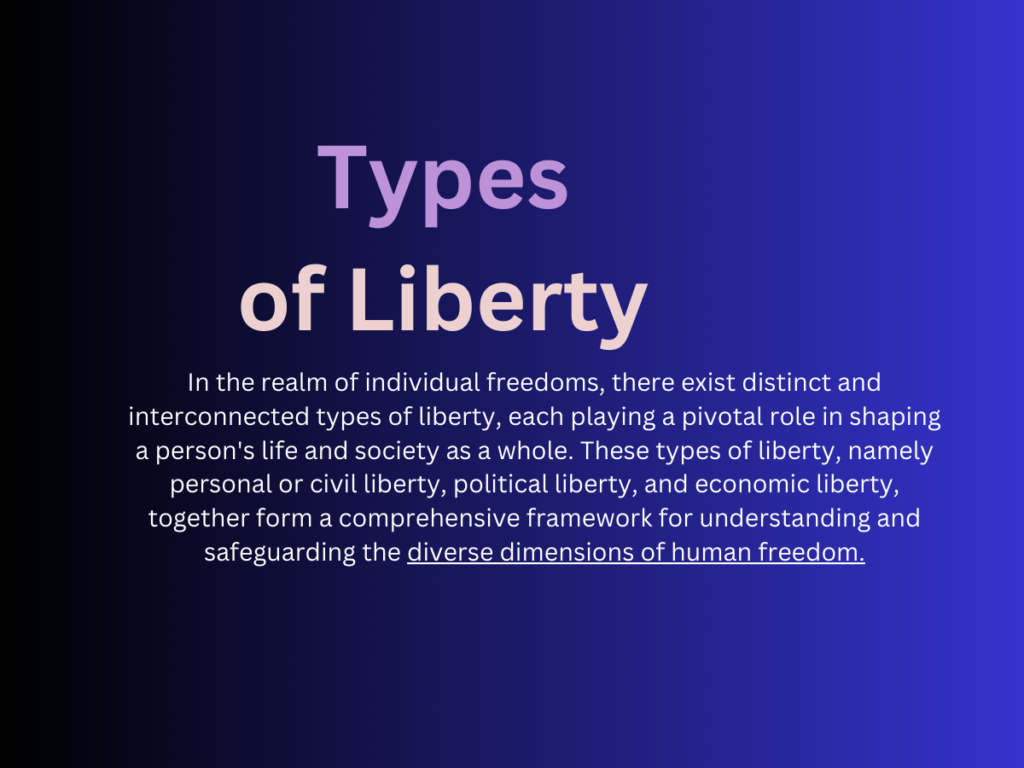
In the realm of individual freedoms, there exist distinct and interconnected types of liberty, each playing a pivotal role in shaping a person’s life and society as a whole. These types of liberty, namely personal or civil liberty, political liberty, and economic liberty, together form a comprehensive framework for understanding and safeguarding the diverse dimensions of human freedom.
- Personal or Civil Liberty: Personal or civil liberty denotes an individual’s freedom in their personal capacity. It encompasses the freedom of speech and expression, as articulated by Barker in three distinct facets: the freedom from harm or the threat thereof to one’s life, health, and mobility; the freedom to express one’s thoughts and beliefs; and the freedom to engage in contractual agreements and enjoy and manage personal property. Every person should possess the right to their personal space, thoughts, and property, as well as the freedom to move without impediment.
- Political Liberty: Political liberty pertains to an individual’s liberty in their role as a citizen, or as a member of the State. It concerns the people’s right to establish and govern their government. This establishment is achieved through exercising the right to vote, and governance is maintained through gatherings, processions, and discussions. In essence, political liberty signifies the ability to actively participate in State affairs.
- Economic Liberty: Thirdly, we have economic liberty, which pertains to an individual’s freedom in their capacity as a worker, be it through manual labor or intellectual endeavors. Economic liberty translates to job security and the opportunity to earn one’s livelihood, thus unlocking the true meaning of life. A person constantly haunted by the specter of unemployment and economic hardship cannot fully develop their creative potential. Therefore, it is imperative that individuals possess the right to work and the right to have a say in their wages and working conditions. These three rights constitute the fundamental pillars of economic liberty. In a society marked by stark economic disparities between the wealthy and the impoverished, the latter cannot truly enjoy civil and political liberty in its complete sense.